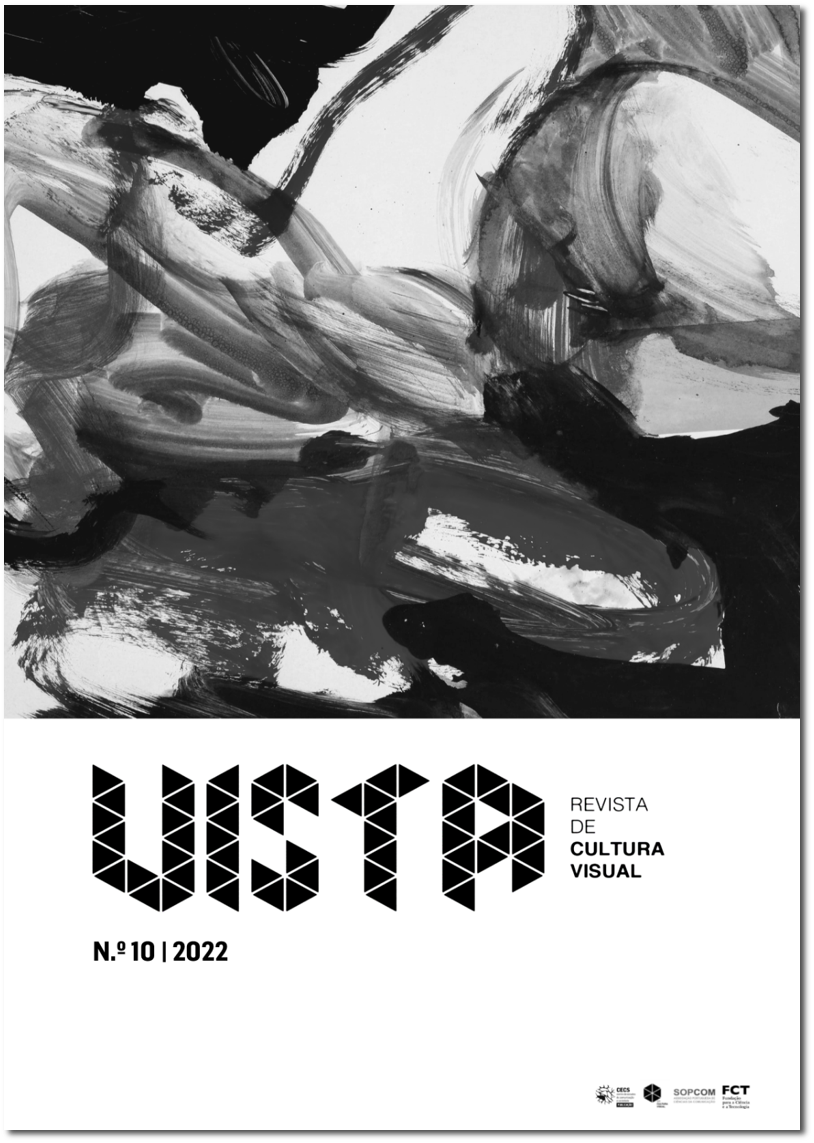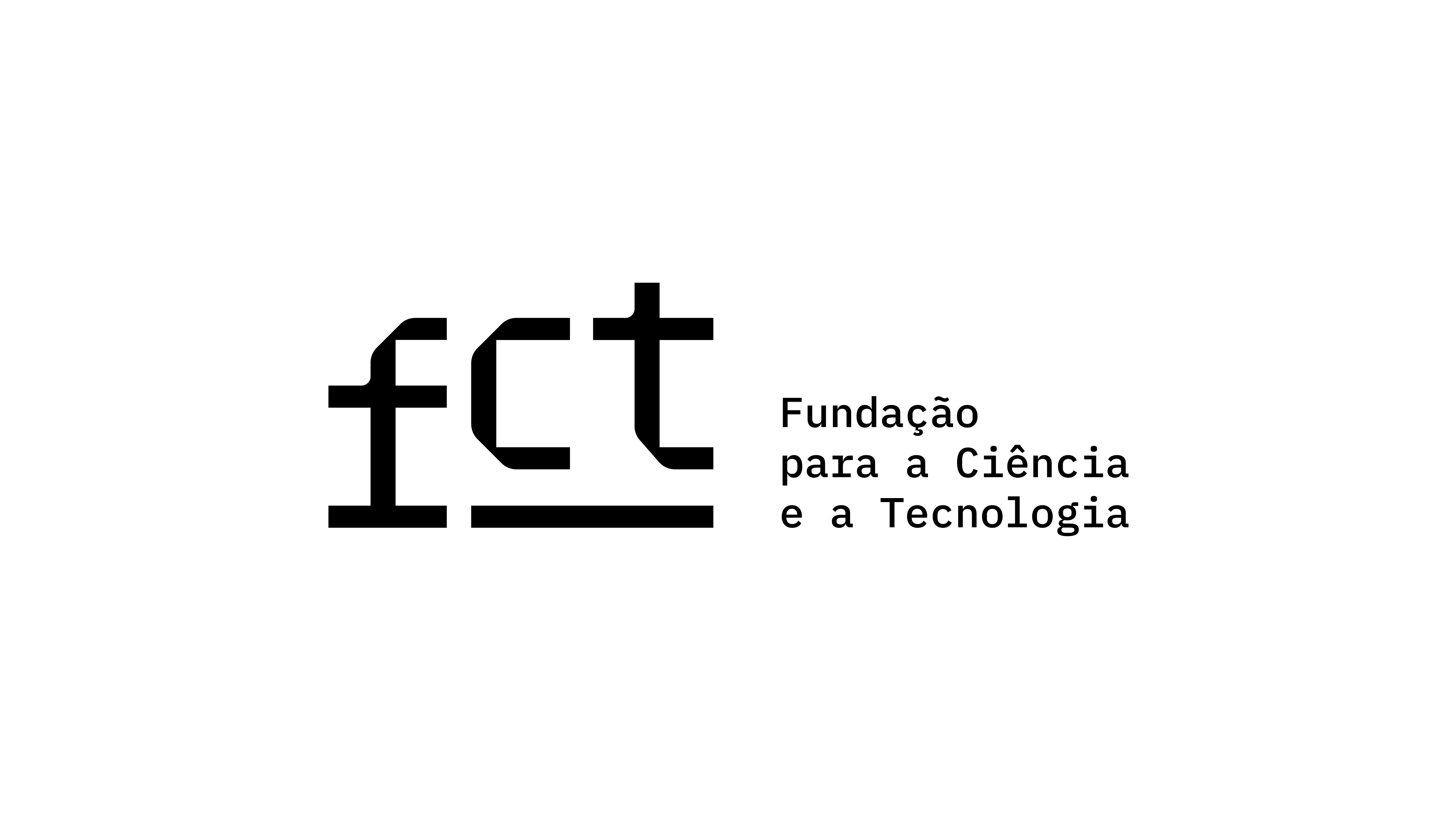Visual Culture, Gender Violence and Masculinities: Intersections and Pedagogical Possibilities
DOI:
https://doi.org/10.21814/vista.4105Keywords:
visual culture, gender violence, education, masculinities, visualitiesAbstract
This article explores the relations between visual culture, gender, and violence, focusing on visualities and their pedagogical roles. Considering the protagonism exercised by men in the practice of gendered violence, we present theoretical insights on the ways in which the social construct of the visual is implied in the problem, based on the approach of visual culture studies and gender studies. Corroborating with these reflections, we describe a pedagogical proposition developed with two groups of visual arts graduation students in the second semester of 2021, in which participants were invited to think about the construction of learning of gender and the violent practices that permeate this process, having as conductor of the discussion the elaboration of visual constellations. This methodological strategy was inspired by the studies of Aby Warburg (2000/2010) and Georges Didi-Huberman (2002/2013, 2011/2018) and sought to explore the inherent potential of the act to confront images. This pedagogical activity was expected to promote shifts of the gaze and repositionings regarding the naturalization of the order of gender and the violent practices it upholds. During the construction of the visual panels and the discussions that moved the meetings, we realized that men have some difficulty comprehending or expressing their role in the problem, while women reported having closer experiences with violent situations. However, even though men did not expressively explore male conduct and complicity, they took advantage of the space to report how male socialization is marked by acts of violence practiced for the sake of gender. We conclude that the role played by visualities in the reproduction or subversion of norms and patterns can contribute to defying networks of meaning that are socially settled towards gender.
Downloads
References
Abreu, C. L. De. (2014a). O digital como arquétipo do real: Homofobia e sexismo 2.0. In E. M. Chaud & T. Sant’Anna (Eds.), Anais do VII Seminário Nacional de Pesquisa em Arte e Cultura Visual (pp. 732–743). PPGACV-UFG.
Abreu, C. L. De. (2014b). Géneros y sexualidades no heteronormativas en las redes sociales digitales [Tese de doutoramento, Universidade de Barcelona]. Repositório Digital UB. http://diposit.ub.edu/dspace/handle/2445/62126
Abreu, C. L. De. (2017). Justiça social e educação: Problemas de gênero nas artes visuais. In F. Miranda, G. Vicci, & M. Ardanche (Eds.), Anais do V Coloquio Internacional Educación y Visualidad (pp. 325–332). UDELAR.
Acosta, F., Andrade Filho, A., & Bronz, A. (2004). Conversas homem a homem: Grupo reflexivo de gênero – Metodologia. Instituto Noos.
Belausteguigoitia, M., & Lozano, R. (2019). Cultura visual. In A. Colling & L. Tedeschi (Eds.), Dicionário crítico de gênero (2.ª ed., pp. 147–150). Editora UFGD.
Bertagnolli, G., Silva, D., Taschetto, L., & Torman, R. (2020). Misoginia em redes sociais: Uma forma de violência contra mulheres. Contribuciones a las Ciencias Sociales, (65), 1–21. http://hdl.handle.net/20.500.11763/cccss2003misoginia-redes-sociais
Bueno, S., & Lima, R. S. De. (2022). Anuário brasileiro de segurança pública 2022. Fórum Brasileiro de Segurança Pública. https://forumseguranca.org.br/wp-content/uploads/2022/06/anuario-2022.pdf?v=5
Butler, J. (2020). Problemas de gênero: Feminismo e subversão da identidade (R. Aguiar, Trad.; 20.ª ed.). Civilização Brasileira. (Trabalho original publicado em 1990)
Callegari, C., Marinatto, L., & Souza, R. (2022, 13 de julho). ‘Operação flagrante’: Veja, passo a passo, como equipe de enfermagem desmascarou anestesista preso. O Globo. https://oglobo.globo.com/rio/noticia/2022/07/operacao-flagrante-veja-passo-a-passo-como-equipe-de-enfermagem-desmascarou-anestesista-preso.ghtml
Canlı, E., & Mandolini, N. (2022). Estética em angústia: A violência de género e a cultura visual. Nota introdutória. Vista, (10), e022009. https://doi.org/10.21814/vista.4071 DOI: https://doi.org/10.21814/vista.4071
Connell, R. (2005). Masculinities (2.ª ed.). University of California Press.
Cortese, A. (2008). Provocateur: Images of women and minorities in advertising. (3.ª ed.). Rowman & Littlefield Publishers.
Didi-Huberman, G. (2013). A imagem sobrevivente: História da arte e tempo dos fantasmas segundo Aby Warburg (V. Ribeiro, Trad.). Contraponto. (Trabalho original publicado em 2002)
Didi-Huberman, G. (2018). Atlas ou o gaio saber inquieto (M. Arbex & V. Casa Nova, Trads.). Editora UFMG. (Trabalho original publicado em 2011)
Diniz, D. (2022, 12 de julho). O silêncio é uma forma de conivência com casos de abuso. Nexo Jornal. https://www.nexojornal.com.br/entrevista/2022/07/12/%E2%80%98O-sil%C3%AAncio-%C3%A9-uma-forma-de-coniv%C3%AAncia-com-casos-de-abuso%E2%80%99
Ferguson, H., Hearn, J., Holter, Ø., Jalmert, L., Kimmel, M., Lang, J., & Morrell, R. (2005). Acabando com a violência de gênero: Um chamado para uma ação global que envolva os homens (Lupa Comunicação, Trad.). Asdi. (Trabalho original publicado em 2004)
Fixmer-Oraiz, N., & Wood, J. (2019). Gendered lives: Communication, gender, & culture (13.ª ed.). Cengage.
Flood, M. (2019). Engaging men and boys in violence prevention. Palgrave Macmillan. DOI: https://doi.org/10.1057/978-1-137-44208-6
Funk, R. (2006). Reaching men: Strategies for preventing sexist attitudes, behaviors, and violence. Jist Life.
Haidar, D., Freire, F., & Coelho, H. (2022, 14 de julho). Polícia investiga 30 possíveis casos de estupro por anestesista no RJ. G1. https://g1.globo.com/rj/rio-de-janeiro/noticia/2022/07/14/policia-investiga-30-casos-suspeitos-de-estupro-de-anestesista-no-rj.ghtml
Hernández, F. (2005). ¿De qué hablamos cuando hablamos de cultura visual? Educação e Realidade, 30(2), 9–34. https://seer.ufrgs.br/educacaoerealidade/article/view/12413
Hernández, F. (2007). Catadores da cultura visual: Proposta para uma nova narrativa educacional. Mediação.
Hernández, F. (2011). A cultura visual como um convite à deslocalização do olhar e ao reposicionamento do sujeito. In R. Martins & I. Tourinho (Eds.), Educação da cultura visual: Conceitos e contextos (pp. 31–50). Editora UFSM.
Hernández, F. (2013). La cultura visual en los procesos de documentación sobre cómo los jóvenes aprenden dentro y fuera de la escuela secundaria. Visualidades, 11(2), 73–91. https://doi.org/10.5216/vis.v11i2.30686 DOI: https://doi.org/10.5216/vis.v11i2.30686
Katz, J. (2019). The macho paradox: Why some men hurt women and how all men can help. (2.ª ed.). Sourcebooks.
Ker, J. (2022, 29 de janeiro). Brasil continua líder mundial de assassinatos da população trans. Estadão. https://brasil.estadao.com.br/noticias/geral,brasil-continua-lider-mundial-de-assassinatos-da-populacao-trans,70003963904
Loponte, L. (2002). Sexualidades, artes visuais e poder: Pedagogias visuais do feminino. Estudos Feministas, 10(2), 283–300. https://doi.org/10.1590/S0104-026X2002000200002 DOI: https://doi.org/10.1590/S0104-026X2002000200002
Loponte, L. (2010). Gênero, visualidade e arte: Temas contemporâneos para educação. In G. Icle (Ed.), Pedagogia da arte: Entre-lugares da criação (pp. 149–163). Editora UFRGS.
Martins, A. F. (2008). Conflitos e acordos de cooperação nos trânsitos das visualidades na educação escolar. In R. Martins (Ed.), Visualidade e educação (pp. 97–108). FUNAPE.
Mirzoeff, N. (2003). An introduction to visual culture. Routledge.
Mirzoeff, N. (2016). O direito a olhar (C. Linares, Trad.). ETD – Educação Temática Digital, 18(4), 745–768. https://doi.org/10.20396/etd.v18i4.8646472 (Trabalho original publicado em 2011) DOI: https://doi.org/10.20396/etd.v18i4.8646472
Mitchell, W. J. T. (2015). O que as imagens realmente querem? (M. Poyares, Trad.). In E. Alloa (Ed.), Pensar a imagem (pp. 165–190). Autêntica. (Trabalho original publicado em 2005)
Mondzain, M. J. (2009). A imagem pode matar? (S. Mouzinho, Trad.) Nova Vega. (Trabalho original publicado em 2002)
Newall, D., & Pooke, G. (2021). Art history: The basics (2.ª ed.). Routledge. DOI: https://doi.org/10.4324/9781315727851
Oliveira, J., & Mott, L. (2022). Mortes violentas de LGBT+ no Brasil: Relatório 2021. Grupo Gay da Bahia. https://grupogaydabahia.files.wordpress.com/2022/03/mortes-violentas-de-lgbt-2021-versao-final.pdf
Padiglione, C. (2022, 18 de julho). Ministério Público de SP requisita inquérito contra Jovem Pan por cena de estupro. Folha de São Paulo. https://f5.folha.uol.com.br/colunistas/cristina-padiglione/2022/07/ministerio-publico-de-sp-requisita-inquerito-contra-jovem-pan-por-cena-de-estupro.shtml
Pease, B. (2019). Facing patriarchy: From a violent gender order to a culture of peace. Zed Books. DOI: https://doi.org/10.5040/9781350220027
Santos Junior, J. M. dos, & Abreu, C. L. de. (2022). A montagem como recurso para promover disrupções em contextos educativos: Cultura visual, gênero e sexualidade. In G. Andraus (Ed.), Anais do IV Seminário Internacional de Pesquisa em Arte e Cultura Visual (pp. 225–234). PPGACV-UFG.
Sturken, M., & Cartwright, L. (2017). Practices of looking. An introduction to visual culture (3.ª ed.). Oxford University Press.
Waiselfisz, J. (2015). Mapa da violência 2015: Homicídio de mulheres no Brasil. FLACSO. http://www.onumulheres.org.br/wp-content/uploads/2016/04/MapaViolencia_2015_mulheres.pdf
Warburg, A. (2010). Atlas Mnemosyne (J. Mielke, Trad.). Akal. (Trabalho original publicado em 2000)
Warner, M. (1991). Introduction: Fear of a queer planet. Social Text, (29), 3–17.
Zanello, V. (2020). Masculinidades, cumplicidade e misoginia na “casa dos homens”: Um estudo sobre os grupos de WhatsApp masculinos no Brasil. In L. Ferreira (Ed.), Gênero em perspectiva (pp. 79–102). CRV.
Downloads
Published
How to Cite
Issue
Section
License
Copyright (c) 2022 Jocy Meneses dos Santos Junior, Carla Luzia de Abreu

This work is licensed under a Creative Commons Attribution 4.0 International License.
Authors own the copyright, providing the journal with the right of first publication. The work is licensed under a Creative Commons Attribution 4.0 International License.













